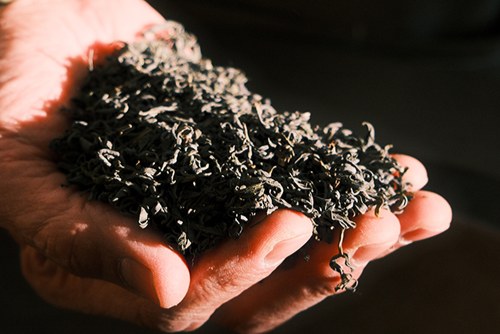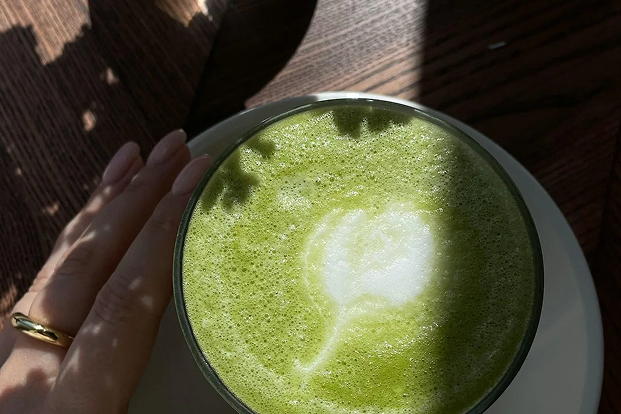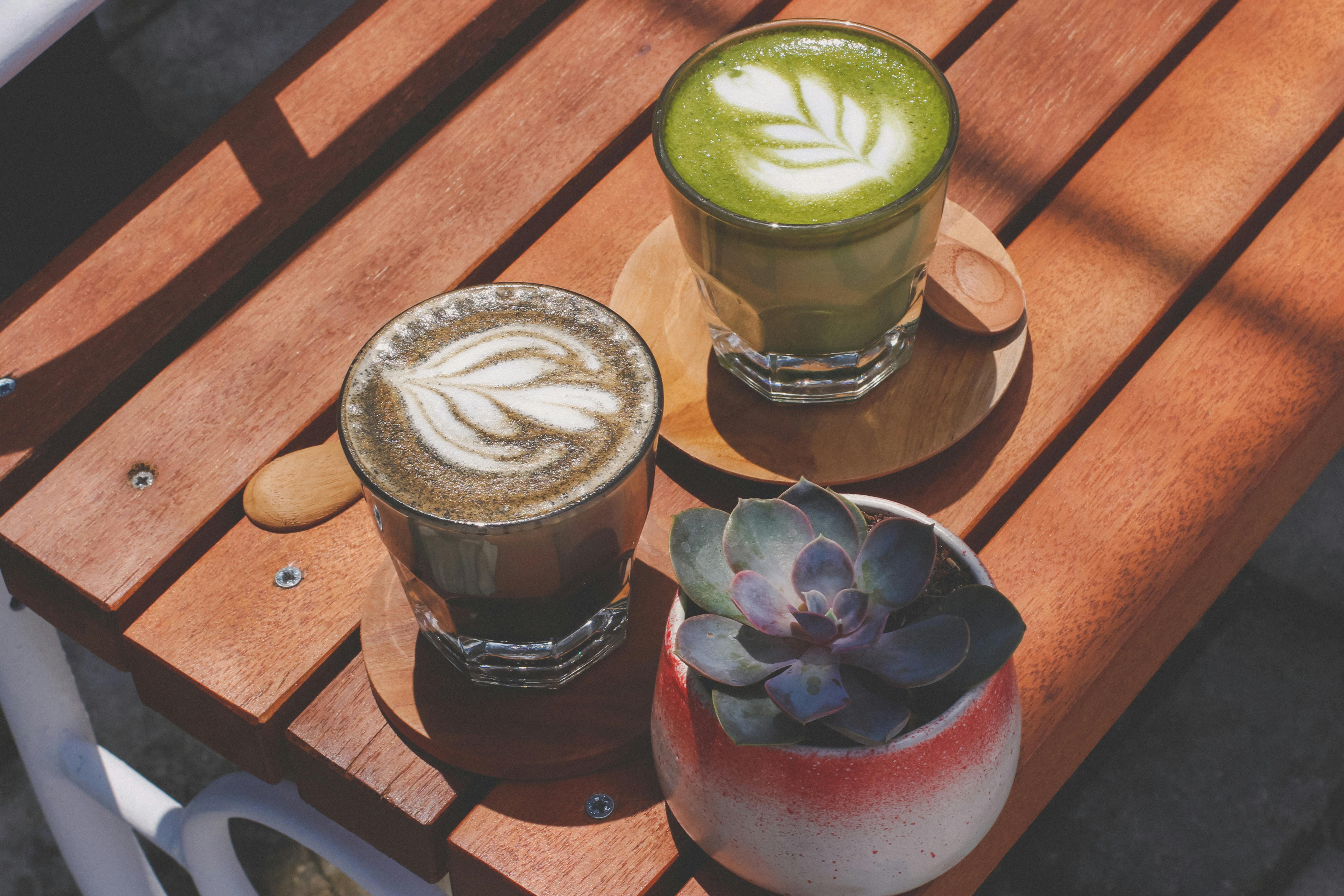In a world that moves quickly, tea offers us a pause. A quiet moment to slow down, sip with intention, and reconnect with what nourishes us—physically and emotionally. At Wild Orchard, we believe tea is more than a beverage. It’s a wellness essential rooted in nature, enriched by ritual, and designed to support the body, mind, and spirit.
The Science of Tea and Hydration
Wellness begins with hydration. Every cell in the body relies on water to function, and staying hydrated is one of the simplest ways to support digestion, mental clarity, energy, and overall balance. Tea provides a calming, flavorful way to hydrate, especially when you're looking for something beyond plain water. Because it’s mostly water, tea counts as part of your daily fluid intake. And unlike sugary beverages, it hydrates without unnecessary additives.
Our organic teas—grown regeneratively on Jeju Island and crafted without additives—deliver clean hydration in every cup. Whether you’re sipping warm tea in the morning or enjoying a chilled brew on a summer afternoon, you’re giving your body what it needs in a form that’s as soothing as it is functional.
Catechins and Flavonoids: Understanding Tea's Protective Compounds
But tea offers more than hydration. It’s naturally rich in antioxidants, particularly catechins and polyphenols, which help fight oxidative stress and support a healthy immune response. Green tea is especially known for its antioxidant content, and matcha tea—our finely ground green tea powder—is a concentrated source of these powerful compounds. When you drink matcha, you’re consuming the entire leaf, unlocking even more nutritional benefits in a single, vibrant cup. Our matcha black teas also bring unique properties through natural oxidation, offering a deeper flavor profile and a comforting calm.
The wellness benefits of tea also extend beyond the physical. There is a quiet power in ritual—the act of preparing, steeping, and savoring a cup can be a form of mindfulness, a way to anchor the day with purpose. The scent of warm leaves, the sound of water pouring, the stillness of the moment between sips—this is wellness not just for the body, but for the soul. It’s a practice of presence, and one we return to again and again.
Health Benefits Linked to Regular Tea Consumption
Research continues to explore tea’s wide-reaching health benefits. Regular tea consumption has been linked to:
- Improved heart health and healthy blood pressure
- Enhanced cognitive function and mental alertness
- Support for healthy metabolism and weight balance
- Calmer, more sustained energy through L-theanine, an amino acid known to promote relaxed focus
- Immune system support through antioxidant activity
- Gentle support for digestion and gut health
Drink Away Dementia with Organic Tea
As we age, our ability to think, remember and reason can get weaker. However, simply growing forgetful with age, and developing dementia (e.g. Alzheimer’s, Parkinson's, etc.) are different. Small vessels in the brain become damaged over a long period of time. When abnormal proteins accumulate in certain parts of the brain, they damage healthy brain cells and cause them to die. In healthy people, the brain’s immune function removes these abnormal protein plaques by responding to the inflammation they cause. But when this response doesn’t happen properly and the inflammation continues for a long time, the brain cells become damaged and dementia takes root. As there is no cure for dementia, it is important to work on prevention. But how? Catechins are a natural antioxidant found in fruits, vegetables, and even wine and chocolate, but most abundantly in green tea. The main catechin in green tea is called EGCG (epigallocatechin-3-gallate). Because the brain is such an important organ in our body, it has a natural barrier that carefully screens what passes through from the blood into the brain (like a bouncer guarding the door of a VIP room). EGCG passes through the blood-brain barrier very easily (like a VIP). This allows it to act directly on the brain, and potentially improve the health of blood vessels and increase the supply of nitric oxide, which together could benefit cognitive function.
The Theanine Component
Another very important component in green tea is an amino acid called l-theanine. It is only found in some mushrooms and teas, especially green tea. L-theanine has strong neuro-protective effects on brain cells. Like EGCG, l-theanine is another VIP to the brain, meaning it can easily enter into the brain. This direct access can allow it to improve neuroplasticity (the brain's ability to form new connections between neurons). In a study where mice were fed l-theanine twice a week, they showed increased BDNF*, resulting in improved memory and learning.
*BDNF: Brain-derived neurotrophic factor [which plays an important role in the survival and growth of nerve cells].
L-theanine also helps lower stress hormone levels in the blood. While moderate stress for short periods can improve alertness and memory, frequent, prolonged stress can cause our stress hormone levels to become high. When this happens, there is reduced potential for connections between neurons to improve and change. When stress hormone levels are lowered, however, it helps our neurons to form better connections. Basically, reduced stress hormones = better brain function. L-t heanine's effects on reducing stress and anxiety are another way in which green tea protects brain cells from excess stress and age-related damage.
The Calm Caffeine
In our Sleep blog, we explained that a substance called adenosine builds up in our bodies throughout the day. As we accumulate more adenosine, we become sleepy. Caffeine in tea occurs naturally and varies depending on the type of tea and how it's processed. Unlike the sharp jolt often associated with coffee, tea offers a gentler, more sustained form of energy—thanks in part to the presence of L-theanine, an amino acid that promotes calm focus. Green teas typically contain less caffeine than black teas, while matcha, made from powdered whole leaves, delivers a more concentrated dose. For those seeking mindful energy without the crash, tea provides a balanced alternative—supporting alertness while nurturing a sense of calm.
When paired with a mindful lifestyle, tea becomes a simple yet powerful ally in overall wellness. And because Wild Orchard teas are organically grown with regenerative practices, you can sip knowing you're supporting not just your own health—but the health of the planet as well.
The wellness benefits of tea also extend beyond the physical. There is a quiet power in ritual—the act of preparing, steeping, and savoring a cup can be a form of mindfulness, a way to anchor the day with purpose. The scent of warm leaves, the sound of water pouring, the stillness of the moment between sips—this is wellness not just for the body, but for the soul. It’s a practice of presence, and one we return to again and again.
Choosing tea as part of your daily routine isn’t about doing more. It’s about doing less, more mindfully. A single cup can remind us to pause. To breathe. To listen. And to take care of ourselves in ways that are gentle, natural, and lasting.
At Wild Orchard, we craft our teas to support this kind of wellness. Our collection includes green tea for clarity, black tea for grounding, matcha for focused energy, and specialty blends like Sunday Brunch for moments of joyful calm. Each tea is grown in harmony with nature and prepared to honor the quiet intention behind every ritual.
If you’re looking to bring more balance, clarity, and calm into your daily routine, Wild Orchard organic tea is a beautiful place to begin.
Explore our wellness-supporting teas at wildorchard.com and find the one that speaks to your rhythm.








Leave a comment
This site is protected by hCaptcha and the hCaptcha Privacy Policy and Terms of Service apply.